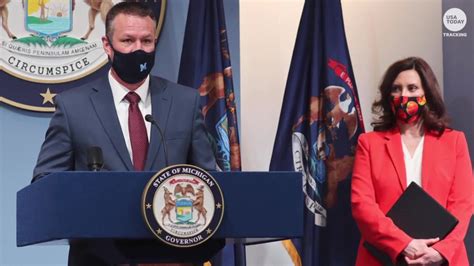BY SAMUEL ALLEGRI March 3, 2021 Updated: March 3, 2021
Iowa Gov. Kim Reynolds and 21 other state governors are speaking out in opposition to President Joe Biden’s new criteria for allocating CCP virus relief funds.
Their main objection is that the bill directs funds to be distributed according to unemployment numbers, instead of the population of the states.
A joint statement released on Feb. 27 reads: “Unlike all previous federal funding packages, the new stimulus proposal allocates aid based on a state’s unemployed population rather than its actual population, which punishes states that took a measured approach to the pandemic and entered the crisis with healthy state budgets and strong economies.
“A state’s ability to keep businesses open and people employed should not be a penalizing factor when distributing funds. If Congress is going to provide aid to states, it should be on an equitable population basis.”
In addition, Reynolds protested on Twitter about how the larger portions of money would be directed to states “who chose aggressive shutdowns and mismanaged their state budgets.”
The bill, which was approved by the House on Feb. 27 in a 219–212 vote, included a potential increase in the minimum wage, which has been widely criticized by Republicans. However, the Senate parliamentarian, who oversees the chamber’s processes, ruled that Democrats can’t include the $15 per hour minimum wage proposal in the COVID-19 economic relief package.
Some Senate Democrats suggested moving forward on the relief bill without the increase.
Democrats in the House and Senate have sought to fast-track Biden’s $1.9 trillion stimulus package without Republican support by approving a resolution to start a process that would allow the bill to be approved in the Senate with a simple majority vote instead of the 60 votes needed to advance most legislation in the chamber.
Sen. Dick Durbin (D-Ill.), the No. 2 Senate Democrat, believes that the $15 minimum wage proposal won’t be included in the Senate version.
“If it takes 60 votes or a supermajority of some kind, it’s very difficult, obviously,” Durbin told reporters on March 1.
Durbin also said it’s very unlikely that the parliamentarian can be overruled.
“I would recommend that we look for another thing. I support increasing the minimum wage,” he said.
All Democratic senators would have to vote in favor of the bill in order for it to pass. However, Sens. Joe Manchin (D-W.Va.) and Kyrsten Sinema (D-Ariz.) have expressed objections to including a boost to the federal minimum wage in the bill.
The Congressional Budget Office released a report projecting that an estimated million people would be “lifted” out of poverty with an increase in the minimum wage, but the report also found that the change could result in the loss of 1.4 million jobs.

